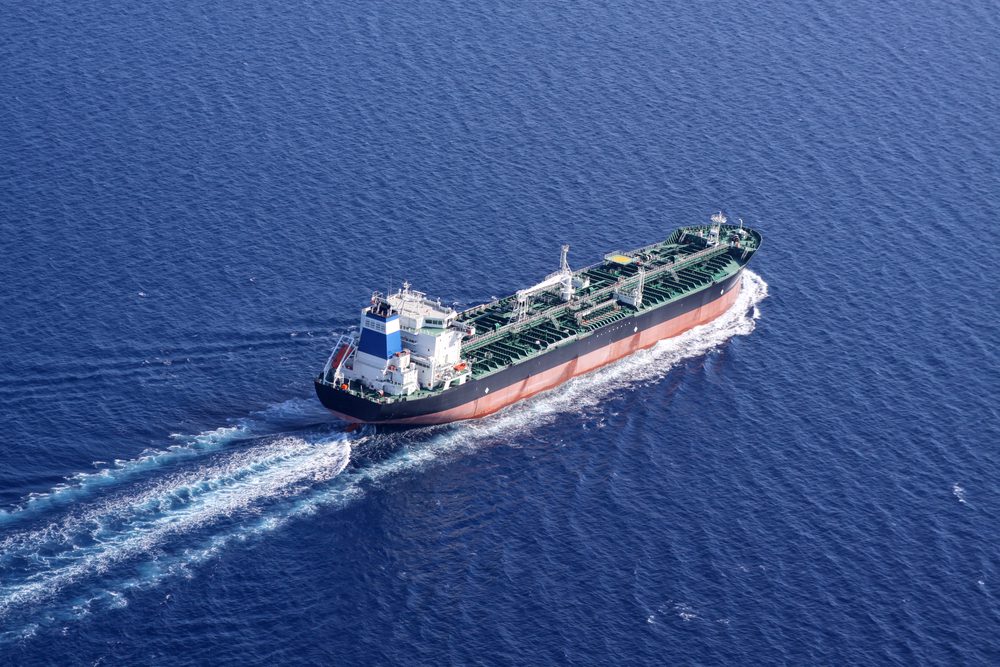Oil Surges After U.S. Sanctions on Russia’s Rosneft and Lukoil
Oil prices surged around 5% to a two-week high on Thursday after the U.S. imposed sanctions on major Russian suppliers Rosneft and Lukoil over Russia's war in Ukraine.

By Ku’uhaku Park, President of the American Maritime Partnership
There is an old yet familiar saying in politics that you should “never let a good crisis go to waste.” As such, it has been no surprise to see the anti-Jones Act activists come out of the woodworks – yet again – as energy prices have increased around the globe in the wake of the war in Eastern Europe.
The anti-Jones Act ideologues and oil trader opportunists, ever predictably, are now calling for waivers to undermine America’s cornerstone maritime law. They claim that the Jones Act is responsible for the increased price at the pump across America. Not only are they wrong on the facts but doing away with the Jones Act could have severe unintended consequences for our nation’s national security, homeland security, and economic security.
Gas prices have skyrocketed in recent months in part due to uncertainty in global energy markets as Russia’s war in Ukraine continues. The fact of the matter is that, according to the U.S. Energy Information Administration, the price consumers face at the pump is directly correlated to the cost of crude oil – a global commodity. The fundamental relationship between crude oil price and gasoline price is consistent and fluctuates upwards and downwards in tandem. Similarly, when the price of wheat changes, so does the price of bread. They’re intertwined.
More specifically, just over the past two months, the price of crude oil has risen by nearly 57%. Considering that the cost of crude oil accounts for roughly 56% of the gasoline sticker price that consumers face, it’s clear what is actually responsible for the increased cost of gasoline. By contrast, the incremental increase in transportation costs during this same time period due to rising fuel prices has been minuscule. In general, the cost of transportation is a small fraction of the delivered cost of gasoline.
So, who stands to benefit from Jones Act waivers?
The main group of people looking to line their pockets with a Jones Act waiver for gasoline would be oil traders. In the wake of Hurricane Sandy in 2012, a reporter for Reuters coined the phrase “disaster arbitrage” to describe situations where oil traders use broad Jones Act waivers to pocket millions of dollars. Under a broad Jones Act waiver, oil is transported on foreign vessels that pay no U.S. taxes, employ foreign mariners at substandard wages, and avoid other U.S. laws even when American vessels are standing by and available to transport the goods. “The traders pocket the difference,” Reuters said, never passing along any savings to consumers. Despite the Jones Act exemptions, gas prices remained high only to the benefit of a select group of profiteering fuel brokers.
Beyond the fact that waiving the Jones Act would have a negligible impact on the cost of gasoline during this global energy crisis, it could potentially have devastating consequences for our nation’s security, especially at a time of uncertainty around the world. If nothing else, Russia’s invasion of Ukraine underscores the importance of ensuring our nation’s ability to protect our economic and homeland security at home and to support our national security interests around the world. The Jones Act ensures that we have a domestic shipbuilding base as well as a pool of mariners to draw upon during cases of national emergency.
Additionally, Jones Act waivers outsource U.S. jobs and undermine America’s long-term economic security. Now is certainly not the time to issue waivers that replace American companies and mariners with foreign vessel operators and mariners. The domestic maritime industry has kept our nation supplied during the pandemic and the resulting supply chain crisis with consistent, reliable service. What an insult it would be to take jobs away from these Americans now, at a time of rising inflation and global uncertainty.
While it has become reflexive for some to point to the Jones Act in every crisis, waiving this law simply would not have an impact on lowering the price of gas. However, it would put money in the pockets of oil traders and foreign interests at the expense of American national security and American workers.
Ku’uhaku Park serves as President of the American Maritime Partnership, which is the broadest and deepest coalition ever assembled to represent the domestic maritime industry.
This editorial first originally published in The Maritime Executive.

Sign up for gCaptain’s newsletter and never miss an update

Subscribe to gCaptain Daily and stay informed with the latest global maritime and offshore news
Essential news coupled with the finest maritime content sourced from across the globe.
Sign Up